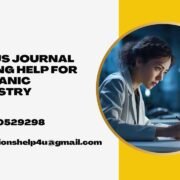PhD writing help in Botany
PhD writing help in Botany
PhD writing help in Botany. Pursuing a PhD in Botany is a journey of scientific inquiry into the diverse world of plant life — encompassing everything from molecular plant physiology to ecological dynamics. With rising global focus on sustainability, climate change, biodiversity conservation, and biotechnology, doctoral research in botany has become more interdisciplinary and impactful than ever. Our PhD writing help in botany is dedicated to supporting doctoral candidates through every phase of their research journey — from topic selection to final thesis submission and journal publication.
We bring together a team of expert botanists, plant biotechnologists, taxonomists, ecologists, and academic editors to ensure your dissertation is not only scientifically rigorous but also tailored to international academic standards.
Comprehensive Support Across All Botanical Disciplines
We offer expert PhD writing support across a wide array of specialized branches of botany, including:
-
Plant Taxonomy and Systematics
-
Plant Anatomy and Morphology
-
Plant Ecology and Environmental Botany
-
Ethnobotany and Medicinal Plants
-
Plant Physiology and Biochemistry
-
Plant Pathology and Microbiology
-
Molecular Biology and Plant Genetics
-
Plant Biotechnology and Genetic Engineering
-
Paleobotany and Bryology
-
Agronomy, Crop Science, and Horticulture
No matter your area of research, we provide customized, chapter-wise writing support that ensures clarity, coherence, and academic excellence.
Innovative PhD Research Topic Selection in Botany
Choosing a relevant and novel topic is critical to your thesis’s success. We assist in identifying cutting-edge research areas that align with your academic interest and global scientific needs. Some trending topics include:
-
“Assessment of Climate Change Impact on Alpine Flora in the Western Himalayas”
-
“Molecular Characterization of Stress-Responsive Genes in Rice Cultivars”
-
“Antimicrobial Potential of Endophytic Fungi Isolated from Medicinal Plants”
-
“In Vitro Propagation and Phytochemical Profiling of Endangered Plants”
-
“Comparative Study of Invasive vs. Native Plant Species in Urban Ecosystems”
-
“Genetic Diversity and Phylogenetic Analysis of Wild Legumes Using DNA Barcoding”
Our PhD proposal writing services include:
-
Research problem and significance
-
Detailed literature review
-
Clearly stated aims and hypotheses
-
Research design and methodology
-
Proposed timeline and budget
-
Ethical and environmental considerations
Literature Review Writing from Authoritative Botanical Sources
Our team conducts extensive literature reviews using authentic databases like:
-
ScienceDirect, SpringerLink, PubMed, Scopus, and Web of Science
-
Journals like Plant Science, Botanical Journal of the Linnean Society, Journal of Experimental Botany, and Plant Cell Reports
-
Government and NGO environmental and conservation reports
Each literature review:
-
Identifies research gaps and limitations
-
Highlights theoretical and practical implications
-
Uses comparative and thematic analysis
-
Incorporates up-to-date references (last 5–10 years)
-
Follows formatting styles like APA, MLA, Vancouver, or Harvard
Methodology Design Tailored to Botanical Research
Whether your research is lab-based, field-based, or computational, we help design detailed research methodologies, such as:
-
Field survey and herbarium techniques
-
In vitro plant tissue culture protocols
-
Biochemical assays and phytochemical analysis
-
Molecular techniques: DNA extraction, PCR, qRT-PCR, RAPD, ISSR
-
Microscopy and histological analysis
-
Remote sensing and GIS-based vegetation mapping
-
Ecological sampling, biodiversity indices, and statistical modeling
We also assist in preparing Standard Operating Procedures (SOPs), flowcharts, and laboratory protocols for clear documentation of your research methods.
Data Analysis and Interpretation Support
Our specialists assist in statistical and visual representation of your findings using:
-
SPSS, R, GraphPad Prism, Excel, and PAST
-
Multivariate analysis, Principal Component Analysis (PCA)
-
Cluster analysis, ANOVA, t-tests, correlation studies
-
Graphical and tabular presentation of morphological, anatomical, and ecological data
-
Molecular data interpretation including gel electrophoresis bands, sequence alignment, and phylogenetic tree construction
Every result is presented with scientific justification and literature-backed interpretation.
Full PhD Thesis Writing in Botany – Chapter by Chapter
We offer complete thesis writing assistance structured as per your university’s guidelines:
1. Introduction
Provides background, identifies the research gap, defines objectives, and establishes the significance of the study.
2. Literature Review
A critical summary of previous studies highlighting research trends and theoretical frameworks.
3. Materials and Methods
Detailed explanation of tools, techniques, and procedures followed during the research with illustrations and lab protocols.
4. Results
Presentation of analyzed data using charts, graphs, images, and statistical summaries.
5. Discussion
Comparison of current findings with previous studies, hypotheses validation, and interpretation of scientific relevance.
6. Conclusion and Future Scope
Highlights key contributions of the study and suggests directions for future research.
Each chapter is written in formal academic tone, with accurate citations, logical flow, and visual clarity.
Editing, Proofreading, and Plagiarism Checking
We ensure your thesis is error-free, technically sound, and 100% original through:
-
Language editing and scientific proofreading
-
Formatting per your university’s thesis style guide
-
Plagiarism check using Turnitin/iThenticate with a detailed report
-
Bibliography management using EndNote, Zotero, or Mendeley
-
Visual enhancements for tables, images, and diagrams
-
Cross-referencing, indexing, and pagination
You receive a submission-ready thesis with confidence in quality and authenticity.
Journal Article Writing and Publication Support
To boost your academic profile, we help you convert thesis content into journal manuscripts, offering:
-
Manuscript writing (original, review, short communication)
-
Journal selection (SCOPUS, SCI, UGC CARE-listed)
-
Formatting and referencing as per journal guidelines
-
Submission and peer-review assistance
-
Response letter drafting and revision guidance
We help you publish in reputed journals like Plant Physiology, Journal of Plant Research, and Plant Biotechnology Reports.
Ethical Assurance and Confidentiality
We operate with the highest levels of integrity:
-
Non-disclosure agreements (NDAs) upon request
-
Adherence to ethical guidelines for plant sampling, biodiversity conservation, and molecular research
-
No reselling or reusing of content
-
Complete ownership of the thesis transferred to the student
-
Secure storage of your data and documents
Why Choose Our PhD Writing Help in Botany
✅ Team of PhD botanists, editors, and subject matter experts
✅ Customized solutions for every university guideline
✅ Timely delivery with multiple revision options
✅ Support for field work, lab experiments, and bioinformatics analysis
✅ Affordable pricing for students and researchers
✅ Help available in English, Hindi, and regional languages on request
Elevate Your Botanical Research with Expert Thesis Help
Botany is a key discipline for the planet’s survival and sustainability. Your PhD research deserves the best writing support to transform it into a milestone of academic excellence. With our PhD writing help in botany, you get a collaborative partner who understands your scientific vision and helps you express it with clarity, accuracy, and impact.
Contact us today and take the first step toward academic success in plant sciences.
Thank you for read our blog “PhD writing help in Botany”.
I hope this blog is helpful to you, if you have any question feel free Call / WhatsApp: +91.9830529298 || Email: dissertationshelp4u@gmail.com
Also read our more BLOG here.











